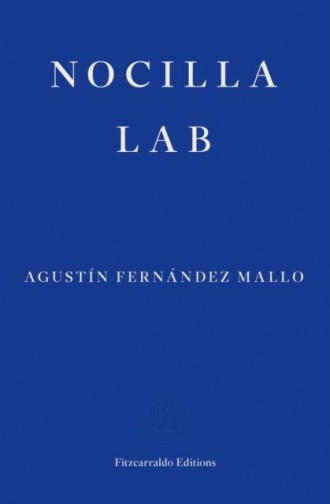This is the last article you can read this month
You can read more article this month
You can read more articles this month
Sorry your limit is up for this month
Reset on:
Please help support the Morning Star by subscribing here
Nocilla Lab
by Agustin Fernandez Mallo
(Fitzcarraldo Editions, £12.99)
HOW to create a literature out of the detritus of consumer culture? That’s the task Agustin Fernandez Mallo sets himself in Nocilla Lab, the concluding volume of a trilogy published in Spain between 2006 and 2009, which seeks to create a poetics fit for the late capitalist epoch.

Unlike the previous volumes, which sutured quotations of theoretical physics and Hollywood films with fictional narrative strands into a peculiar cumulative collage, this concluding work is one of “autofiction” that blends memoir and fiction in detailing the origins myth of what Mallo calls “The Project.”
The opening section is a single, serpentine 70-page sentence in which Mallo sieves through his memories and ideas in the vain attempt to trace the provenance of The Project. Never precisely described, it seems to centre upon an empty Gibson guitar case.
Much like the previous volumes, Nocilla Lab’s structure is centripetal, obsessively returning to episodes and ideas which are propelled by patterning rather than progress.
As well as capturing the vagaries of representing interiority, it also reflects the logic of the reifying forces of consumerism delineated by Gyorgy Lukacs, where “time sheds its qualitative, variable, flowing nature; it freezes into an exactly delimited, quantifiable continuum filled with quantifiable things.”
Out of these quantifiable “things” — the revelation that captures the essence of the Nocilla project — is Coca Cola.
Mallo points out from the outset that in the history of art “the fact that everything resembles some other thing is a universal law.” But Coca Cola fundamentally breaks this law of similitude, leading him to muse that “history’s like a huge supermarket.”
Narrative is the mere rearrangement of commodities, language becomes material and objects acquire linguistic properties as fecund, if sometimes overdetermined, metaphors.
The second section finds Mallo and his partner settling in an abandoned prison in Sardinia which has been turned into an eco hotel tax-avoidance scheme, only to find the owner appears to be stealing both his identity and his “Project.”
In this overstuffed metaphorical architecture, kill your doppelganger before they kill you is the murderous logic that plays out. The increasingly deranged typewritten writings of Mallo further his materialist metaphysics, pushing against the limits of writing as a representational mode and it culminates in a comic depicting a meeting with the genre-bending writer Enrique Vila-Matas.
This somewhat smug exorcism of Western literary aesthetics may affirm the difficulties of representing the decaying present. But instead of metaphors that impotently refer to our own world, we need ones that point towards another.










